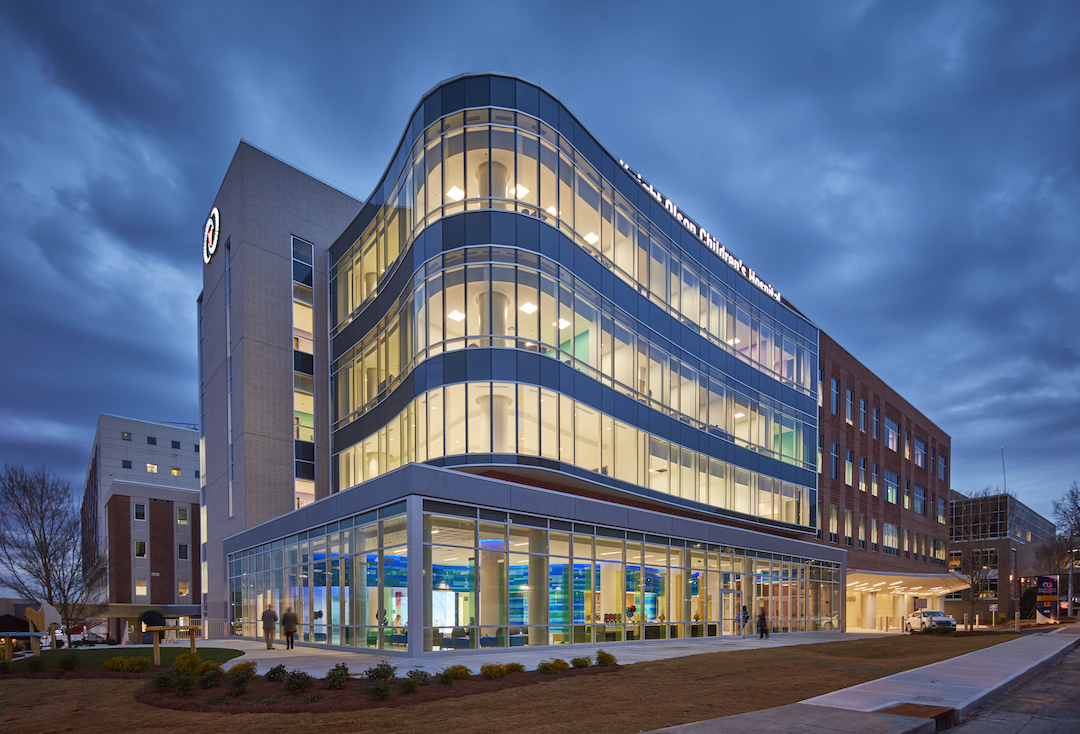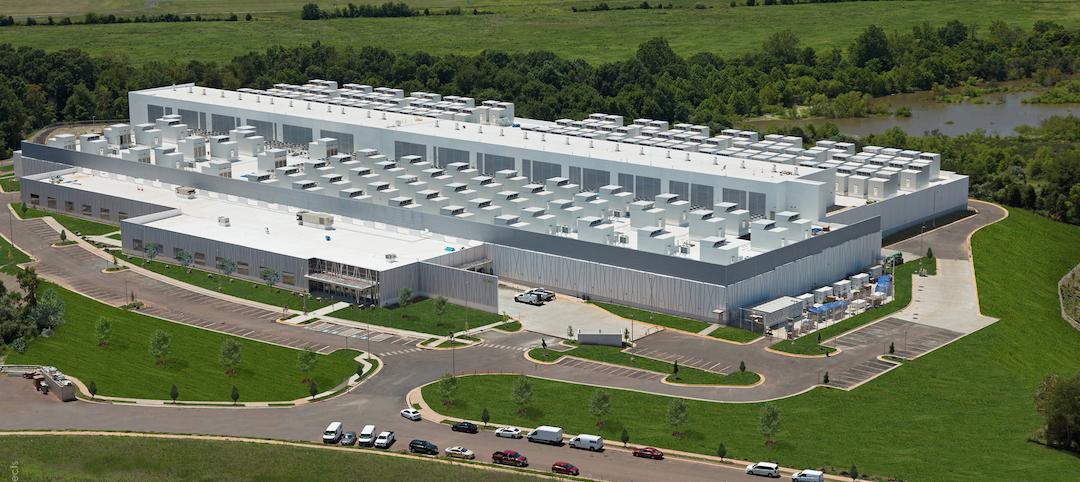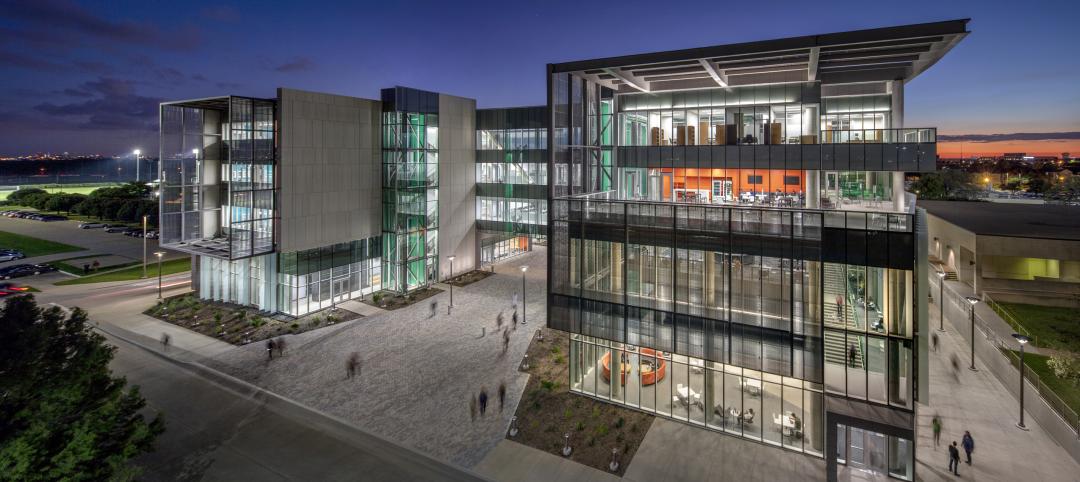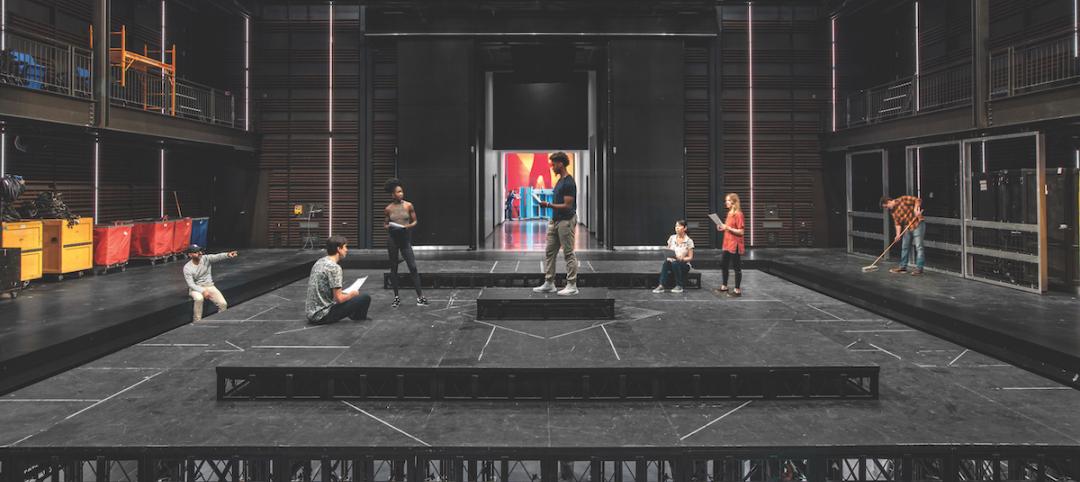Upgrades to medical equipment and systems and improvements to building systems are the current focus in the healthcare market.
Healthcare consolidation contributes to this trend. After larger health systems acquire smaller, rural facilities, there’s typically a push to renovate them and upgrade technology, says Robin Savage, President/COO, Robins & Morton. “A lot of this work is centered on diagnostic and imaging and service areas like women’s services,” says Savage.
The next big advancement: the so-called “smart hospital.” With multiple systems able to communicate with each other, such a building perform functions like another medical practitioner.
At the $1.6 billion Mackenzie Vaughan Hospital, now under construction in Toronto, building systems and medical technology will be linked. When a patient’s monitor detects a heart attack, it will send a silent alert to critical care response team members equipped with wearable location services badges. The badges will automatically override elevator controls, giving team members express service to the patient’s floor.
ALSO SEE: Top 150 Healthcare Architecture Firms
ALSO SEE: Top 90 Healthcare Engineering Firms
ALSO SEE: Top 100 Healthcare Construction Firms
Engineering giant WSP is examining ways to deploy Amazon Echo to aid HIPAA compliance and patient safety, says WSP’s Gary Hamilton, Senior Vice President and Eastern Healthcare Lead. Alerts could be sent to surgical recovery nurses every four hours to ensure that patients receive pain medication on time.
Smart hospitals will also boost energy efficiency. Artificial intelligence would analyze data from building management systems and scheduling software to determine how best to use space. Knowing that a patient was just discharged, smart building technology could turn down the HVAC in the empty room and punch it back up when the room is scheduled to be reoccupied.
Using fiber optic systems throughout the building, MEP systems can be integrated with low-voltage systems such as AV and alarm systems. Once linked, these systems can enable smart hospital features. “In five years, the occupant-aware building is going to be commonplace in healthcare,” says Hamilton.
BIM and virtual reality are being used to analyze how healthcare medical professionals use space. “As we design key clinical spaces, we are mapping travel distances,” says Kate Renner, AIA, LEED AP BD+C, Design Researcher and Architect, HKS Inc. The data populates detailed behavior maps, which inform the creation of digital renderings that can be experienced in VR.
HKS also creates full-scale cardboard mockups of key spaces such as inpatient rooms and surgical suites that provide valuable feedback from medical personnel on the positioning of equipment, cabinetry, and sinks.
Coping with natural disasters also figures into the early stages of programming and design. A sudden influx of patients from a hurricane, tornado, or earthquake could be accommodated if emergency rooms were equipped with double medical gas outlets in headwalls so that trauma victims could be doubled up in each room. Post-anesthesia care units outfitted with extra medical gas and headwall capacity could also function as emergency care units following a disaster, says Renner.
Structural dampeners and reinforced stabilizers for overhead MEP systems are being required in earthquake-prone areas. After Mercy Hospital, Joplin, Mo., was destroyed by a tornado in 2011, collapsed MEP assemblies were found to be the major source of damage, says Renner. To make the replacement structure more resilient, the design also included reinforced stabilizers for the MEP systems, laminated safety glass, reinforced stairwells, battery-powered lights, and wall hooks that can be used to ease patients down stairs with sleds and ropes.
Owners of critical facilities have increased their supply of water storage and generator fuel, Hamilton says. The Veteran’s Administration now requires a two-week supply of water, not the previous one-week standard.
Offsite construction ON THE UPSWING in healthcare sector
Prefab construction of mechanical systems continues to grow. “At least one headwall manufacturer is now including ductwork and insulation,” says Hamilton. “At most trade shows, we’re seeing four or five prefab bathroom manufacturers.”
Prefab exterior wall systems are an increasingly compelling option, says Tim Johnson, Vice President/Division Manager, Brasfield & Gorrie. Evaluating prefab options is a task owners now count on their project teams to assess.
Lean construction is also in demand. “At least three out of four RFPs that we see address Lean management and Lean construction,” Savage says. Contractors must be involved earlier than ever to provide cost and constructability analysis. “Architects and GCs are now being selected at about the same time,” says Johnson.
“During pre-construction, owners require you to commit expensive and knowledgeable resources at the beginning—as much as 12 months before breaking ground,” says Savage. The extra effort does make for an improved architect-contractor relationship, says Hannah Wickham, Vice President, Business Development, Brasfield & Gorrie.
MORE FROM BD+C'S 2019 GIANTS 300 REPORT
Related Stories
Giants 400 | Aug 2, 2019
Top 40 Engineering Architecture Firms for 2019
AECOM, Jacobs, Burns & McDonnell, Thornton Tomasetti, and NV5 top the rankings of the nation's largest engineering architecture (EA) firms for nonresidential buildings and multifamily buildings work, as reported in Building Design+Construction's 2019 Giants 300 Report.
Giants 400 | Aug 2, 2019
Top 80 Engineering Firms for 2019
WSP, Kimley-Horn, Terracon, Arup, and Jensen Hughes top the rankings of the nation's largest engineering firms for nonresidential buildings and multifamily buildings work, as reported in Building Design+Construction's 2019 Giants 300 Report.
Giants 400 | Aug 1, 2019
2019 Engineering Giants Report: Firms add in-demand services
Top business innovations from the nation's largest engineering and engineering architecture (EA) firms, as reported in Building Design+Construction's 2019 Giants 300 Report.
Giants 400 | Jul 31, 2019
Top 100 Architecture Engineering Firms for 2019
Stantec, HDR, HOK, SOM, and CallisonRTKL head the rankings of the nation's largest architecture engineering (AE) firms for nonresidential and multifamily buildings work, as reported in Building Design+Construction's 2019 Giants 300 Report.
Giants 400 | Jul 30, 2019
2019 Architecture Giants Report: The year that was at 94 design firms
A roundup of trends, innovations, new hires, and big wins from 94 of the nation's largest architecture and architecture/engineering (AE) firms, as reported in Building Design+Construction's 2019 Giants 300 Report.
Giants 400 | Jul 30, 2019
Top 150 Architecture Firms for 2019
Gensler, Perkins+Will, HKS, and Perkins Eastman top the rankings of the nation's largest architecture firms for nonresidential and multifamily buildings work, as reported in Building Design+Construction's 2019 Giants 300 Report.
Giants 400 | Jul 2, 2019
2019 GIANTS 300 REPORT: Innovations and trends at the nation’s largest architecture, engineering, and construction firms
More than 485 U.S.-based architecture, engineering, and construction firms participated in the 2019 Giants 300 report. Check out the rankings below.
Giants 400 | Jun 26, 2019
How are the AEC Giants faring in the tech arms race?
About half (42%) say their firm is “on par” with their most-direct AEC competitors.
Giants 400 | Oct 12, 2018
Sports venues reach outside their walls
Professional and collegiate facilities invite fans to engage with the community.
Giants 400 | Oct 5, 2018
Top 60 Sports Facilities Contractors + CM Firms [2018 Giants 300 Report]
AECOM, Mortenson, and Turner lead Building Design+Construction's ranking of the nation's largest sports facilities contractors and construction management (CM) firms, as featured in the 2018 Giants 300 Report.








![Top 150 Architecture Firms for 2019 [Giants 300 Report] Top 150 Architecture Firms for 2019 [Giants 300 Report]](/sites/default/files/styles/list_big/public/Microsoft%20London%20headquarters%2C%20by%20Gensler%2C%20photo-%20Gareth%20Gardner%20.jpg?itok=CL3WnzuY)



![Top 60 Sports Facilities Contractors + CM Firms [2018 Giants 300 Report] Top 60 Sports Facilities Contractors + CM Firms [2018 Giants 300 Report]](/sites/default/files/styles/list_big/public/SPORTS%20CONST.jpg?itok=-16_y7XJ)




